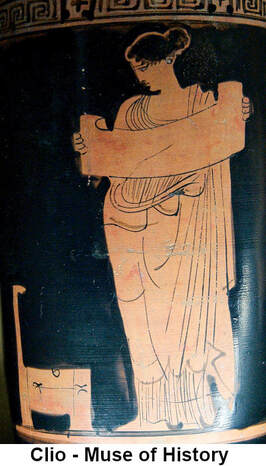
The global rise of populism, right-wing reaction, the drive toward fascism and the locking in of the will of the minority via questionable methods smacking of the same totalitarian impulses that democracy fought to suppress in the twentieth century make mincemeat of Fukuyama’s thesis. However, now we may be witnessing the actual end of history, but in a very different and far more dangerous sense.
If this is the end of history, it is because (1) it is declining as an academic subject in both K-12 and college classrooms, deemed not particularly relevant to the kind of education needed; (2) there are fewer historians, (3) Americans (as well as citizens of other countries) are increasingly ignorant of what went before, and (4) increasingly our political leaders, the people who should be most aware of and sensitive to history, are both clueless and uninterested in learning its critically important lessons.
I was blessed throughout my educational journey with a number of magnificent history teachers. What I learned from them has both greatly influenced my life as well as my reading, research and writing, as well as my public policy predilections. I have experienced at a granular level how history affects everything we do and every direction our nation and world takes. Today, as history has receded as an academic subject, my kind of experience might no longer be possible.
No historical parallel is perfect. But some are so aligned that immensely important lessons can be drawn from them, or ignored at their peril. One of the best examples of this was Hitler’s June 22, 1941 invasion of the Soviet Union, Operation Barbarossa, likely the disaster that more than any of his other mistakes, led to his and Germany’s ruination. The century prior, Napoleon’s 600,000-man Grand Armée invaded Russia at around the same time of year, only to run smack into Russia’s typically early winter, which decimated Napoleon’s army. He left Russia with 9,000 troops. Hitler had all of the information about Napoleon’s folly, but ignored it. He chose poorly.
There are also plenty of examples where learning from history’s mistakes led to remarkable triumphs. The World War II allies were acutely aware of the terrible mistake made a quarter of a century before by the World War I victors—namely, treating defeated Germany harshly, a calculus that led to Hitler’s coming to power and setting the planet on fire. This time around, the conquerors were magnanimous towards the losers and both they and the world have profited hugely for 75 years as a result. The Allies chose wisely.
Neither an individual nor a nation can learn from history if they are ignorant of it. Surveys uniformly indicate that today’s Americans are woefully uninformed.
In fall 2020, the American Historical Association conducted a national survey of 1,816 people. Two-thirds of respondents considered history to be little more than an assemblage of names, dates, and events. More than three-fourths of high schoolers responded similarly. The idea that the past has lessons for us or that it should stimulate questions and critical analysis was virtually non-existent. All of this says nothing about attempts by outside groups to thwart the study of history by banning certain subjects, e.g., the impact of race. What has been happening recently at school board meetings serves to make teachers afraid to teach history. Instead of addressing possibly controversial subjects, they avoid them.
The shift away from history likely began on October 4, 1957, when the Soviet Union’s launch of its Sputnik space satellite prompted the U.S. government and public to panic that we had fallen behind the Russians in science and technology. Educational priorities shifted dramatically toward science and mathematics. History, which had been deemed one of four core subjects along with science, math and language, was suddenly viewed as having no immediately applicable, practical use and was de-emphasized.
There are, however, a handful of holdouts where history education is still highly valued and is nurtured by academic administrators and eagerly embraced by students. It remains a top major at Yale, Brown, Princeton and Columbia. Meanwhile, it is being downgraded at the vast majority of universities. We cannot afford to so limit the pool of historians to graduates of a few Ivy League institutions.
It is very troubling that one of our major political parties depends on voters’ inability to apply their sense of history to assessing its policies. Immigration is a classic example. Trump turned immigration into the reason for most of the country’s problems even though history shows that it has been one of our biggest pluses, responsible for tremendous innovation and economic progress. Republicans and other despotically-inclined groups are really good at this. The Nazis rode the bogus “stab-in-the-back” falsehood (re: who lost World War I) to power. The Communists’ 65-volume Great Soviet Encyclopedia, every entry virtually a lie, contributed to brainwashing an entire population. Donald Trump’s MAGA illusion and Big Lie are having a similar effect on the willingly conned. Whitewashing history for nefarious ends is, sadly, a highly successful political strategy.
The end of history is a bad portent for the future of this nation. A healthy democratic society and polity requires a constant, questioning examination and understanding of yesterday. The absence of “critical historical thinking skills” can only lead to tragic policy follies like the Vietnam and Iraq Wars. Re-injecting these skills into the curriculum would go a long way toward making America great and vastly improving the quality of our decision-making.
Dick Hermann
January 1, 2022


 RSS Feed
RSS Feed